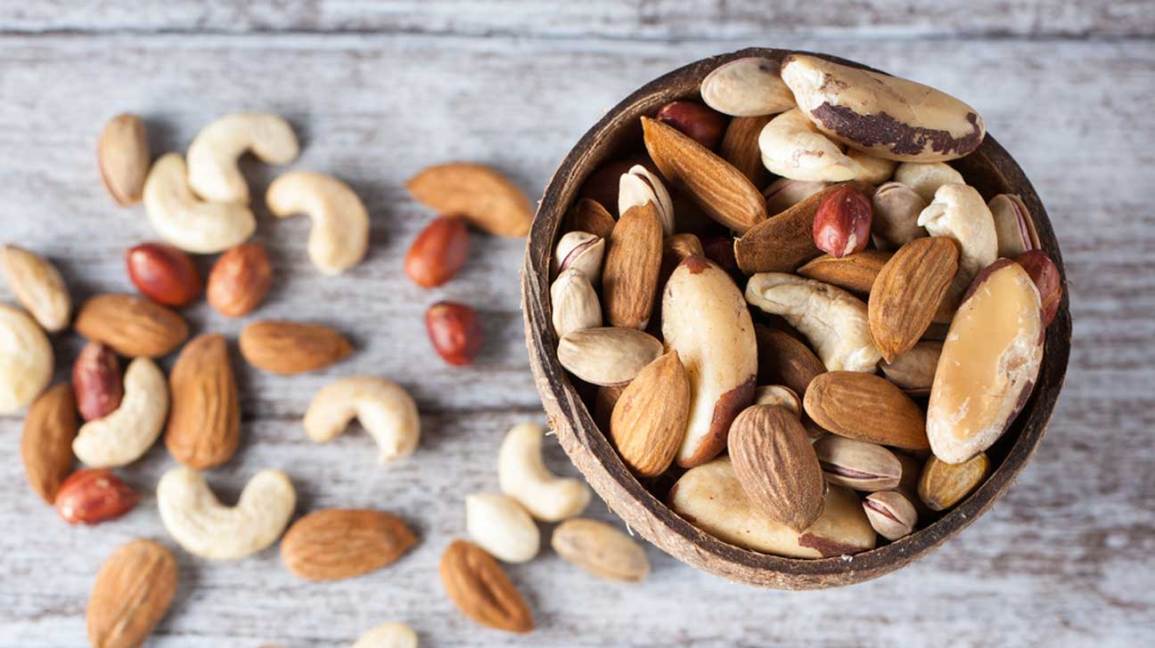
Organic nuts are usually grown using environmentally friendly practices that reduce the use of synthetic pesticides and fertilizers. This is healthier for you, your family, and the environment.
Organic nuts are high in protein, magnesium, and fiber. These nutrients help to regulate blood sugar, keep you satiated, and boost your metabolism.
What distinguishes organic nuts from non-organic ones?
Organic nuts are grown without the use of artificial fertilisers, pesticides and GMOs. They are produced on farms that adhere to organic farming methods and are inspected by an accredited certifying agency.
Non-organic nuts are heavily sprayed with pesticides and chemical preservatives. These chemicals are absorbed into the body when ingested and can affect growth and development in children.
Organic nuts are higher in essential fatty acids, nutrients and antioxidants that aid in digestion, heart health, immune system function and hormonal balance. They also contain minerals including copper, magnesium, manganese and zinc that are crucial for healthy bone and organ function. These nuts are also rich in vitamin E and have been shown to help prevent heart disease.
Pesticides
The conventionally grown nuts that we eat are often sprayed with pesticides, which can then permeate the shells and enter our bodies. These pesticides aren’t just harmful to our health; they’re also bad for the environment.
Thankfully, there are ways to lower pesticide levels on produce. Some methods include washing and cooking foods, which reduces pesticide levels by 10-80%.
Organic farms make use of biopesticides, which are naturally occurring chemicals in plants that help to control pests. Using organic pesticides helps to avoid synthetic pesticides, which can be toxic at high levels.
These pesticides are tested and regulated by the Environmental Protection Agency (EPA). Studies include both human and animal testing to ensure the level of pesticide in food is safe for humans and the environment.
GMOs
Genetically modified (GMO) foods, which are created by modifying DNA in a lab, have been causing a lot of concern among consumers. However, research shows that they are safe to eat and do not cause any illness or allergies.
GMOs are designed to make a fruit, vegetable or grain healthier by adding nutrients or making it stronger against pests. They are also created to be resistant to certain chemicals farmers use to control weeds.
To achieve organic certification, an organic farm must be free from synthetic pesticides, fertilizers and herbicides. The organic farming methods must also be sustainable and promote soil and water health.
Nutrients
Nutrients are essential for maintaining a healthy body and are present in a variety of forms. The nutrients found in organic nuts include protein, dietary fibre, omega 6 and 3 fats, antioxidants, vitamins and minerals.
Organic nuts also have a significant level of phenolic phytochemicals, including proanthocyanidins and hydrolysable tannins, which contribute to their antioxidant capacity. Other types of phenolics are also present in nuts, such as flavonoids and stilbenes.
They are also rich sources of dietary fibre, which helps to keep your digestive tract healthy and aids in blood sugar control. In addition, they contain a wide range of vitamins and minerals, including potassium, calcium and magnesium. These nutrients are vital for reducing inflammation and lowering the risk of heart disease. These are the reasons why you should choose to include organic nuts in your diet.
Taste
Organic nuts are a great way to boost your daily intake of nutrients without the need for excessive amounts of processed or artificial sweeteners and additives. They are also a great source of heart-healthy unsaturated fats that help lower inflammation, and contain essential vitamins and minerals like magnesium, zinc, selenium and manganese.
Aside from boosting your overall health, choosing organic nuts can taste a lot better than their non-organic counterparts. Unlike their traditional counterparts, which are often packed with artificial flavorings and preservatives, organic nuts are nutrient-rich and delicious!
When you choose organic nuts, you’re making a commitment to your health and the environment. You’re supporting local farmers and ensuring that the nuts you purchase are free of pesticides, synthetic fertilizers and GMOs. This is a big deal because chronic exposure to pesticides has been linked to several health problems, including delayed development and behavioural issues in children.
Frequently Asked Questions
What is organic meat?
Organic meat refers to real food grown without the use artificial fertilizers, pesticides, or hormones. Organic meat is also a guarantee that the animals weren’t fed any genetically altered feed. The meat is safe to consume because it contains no harmful chemicals.
Organic meats are also better for our environment. When we eat organic foods, we reduce the pollution in landfills, rivers, lakes, etc. We can also help wildlife by eating organic foods. Organic farmers do not often use toxic chemicals that can kill birds or insects.
You can eat organic meats and produce whenever you can. Local buying helps to keep money in the community, rather than moving out of state. Local businesses often pass on savings to customers shopping locally. In addition, buying local keeps jobs right here in America instead of sending them overseas.
What are the most loved organic products?
Organic food is the fastest-growing industry today. We've come far from our roots but there is still room for improvement.
Organic products will be the future. Organic products are safer, more sustainable, and cheaper for consumers.
But they tend to be more expensive. That's why we created the Organic Food Index. We wanted to determine which foods are the most popular among shoppers today and whether these trends are changing.
The results showed that organic food is increasing in popularity. Between 2011-2012, nearly half of Americans shopped for organic foods.
According to USDA, organic food production increased by 10% only last year. Currently, organic food accounts for 9% in the U.S. agricultural production.
Organic food is growing in popularity but is still expensive. The average retail price for organic food is almost twice that of conventional foods, according to the Organic Trade Association (OTA).
That said, organic food is growing faster than any other segment of the food sector. You'll notice that organic food consumption has increased steadily since 2009.
According to OTA the volume of organic products sold at supermarkets grew by 14% in 2010 and 2011.
This is because of consumer demand for healthier products, which explains the rise in organic food sales across all age categories.
However, the younger generation is leading the charge in choosing organic food. Millennials are twice as likely to buy organic food compared to baby boomers. Young adults aged below 35 account for 25%.
What is the difference in organic and non-organic foods?
Organic food is produced without pesticides, chemical fertilizers, sewage sludge, irradiation, or genetic modification. Organic farming practices promote soil health, water quality and animal welfare.
Inorganic foods may be grown with chemical fertilizers, pesticides, or sewage sludge. Radiation is used to treat irradiated food; biological engineering techniques are used to create genetically modified organisms (GMO).
Sometimes, the term "natural", is used interchangeably with "organic." However, natural does not necessarily mean organic. You may also find products that are labeled as "natural", which could contain synthetic ingredients.
Organic produce is usually more nutritious that conventional produce. This is because organic soil contains fewer toxic chemicals and pesticides. Organic farmers also don't use synthetic fertilizers or hormones, pesticides, or antibiotics.
What are organic foods and how do they compare?
Organic produce is grown without pesticides, synthetic fertilizers, sewage sludge, irradiation, genetic engineering, or confinement feeding. No growth hormones or animal testing are done. These crops can naturally grow, so no chemicals are used by farmers to combat pests or weeds.
Organic farming practices help maintain soil quality and reduce erosion. Organics have more nutrients than traditional food, which makes them better for our health. Organic products are more nutritious than conventionally grown foods and have lower calories and fiber.
Why should you buy organic?
Many health issues have been linked to conventional agriculture, including obesity, diabetes and cancer. Make healthy food choices.
The Environmental Working Group (EWG), offers these tips to help you choose "cleaner" foods:
Always purchase organic fruits, vegetables and other products whenever possible.
USDA organic labels for meat, poultry eggs, milk and cheese as well butter and honey are recommended.
Avoid processed foods that are labeled "natural" or "no added ingredients."
Be sure to read all ingredient labels. It is possible to add an ingredient during processing if it isn't already listed.
You should choose fresh meats rather than frozen or canned. Canned and frozen foods can often have lower nutritional content like high fructose syrup.
Statistics
- Cosmetic brands such as Laurel and Rose Mira are 100 percent organic and have a wide array of skincare products. (en.wikipedia.org)
- Brands participating in this challenge are committed to using 100 percent sustainable cotton by 2025.[5] (en.wikipedia.org)
- Nutrients like omega-3 fatty acids were up to 50 percent higher in organic meats and milk than in conventionally raised products.[3] (en.wikipedia.org)
- Popular clothing brands, like Patagonia, are labelled as organic by using 100 percent organic cotton for many of their styles. (en.wikipedia.org)
External Links
usda.gov
ecfr.gov
ams.usda.gov
ncbi.nlm.nih.gov
- PubMed Assessment of the micronutrient compositions of plant foods from conventional and organic agriculture methods.
- Comparison of the total amount of phenolic and/or ascorbic acids in freeze-dried and dried marionberry, strawberry, or corn grown using conventional and organic agricultural practices - PubMed
How To
Organic foods: Are they healthier and more nutritious than conventional food?
Organic foods are produced without the use of chemical pesticides and synthetic fertilizers. They are grown under natural conditions without artificial inputs such as fungicides, insecticides, herbicides, hormones, antibiotics, or genetic engineering. Organic farming practices include crop rotation, cover crops, composting animal manure, recycling wastewater, and integrated pest management (IPM).
In 2002, USDA National Organic Programs (NOP) were established to regulate the production and handling of organic products that are sold in the United States. The NOP regulations ensure that organic agricultural products are produced according to federal standards outlined in the Federal Food, Drug, and Cosmetic Act. The NOP regulations also require that organic products are free of prohibited substances such as pesticide residues and genetically modified organisms.
For producers in the USA who want their products "organic", there are two kinds of certification programs: one for farmers or ranchers and one for manufacturers. Each program requires an annual audit of operations to ensure compliance with strict standards. Several certifying agents offer these services, including CCOF Certified Organic Farmers & Ranchers, Quality Assurance International, and the American Grassfed Association. All three organizations provide third-party verification of farms' adherence to strict guidelines regarding environmental stewardship, labour practices, and livestock care.
According to the USDA's Economic Research Service, organic agriculture accounted for $4.7 billion in sales in 2013. The retail spending on organic products accounted for nearly $1.5 billion in 2013, a 23 percent increase over 2009. Groceries sales increased by 12 per cent during this time. Direct purchases of organic produce saw a 29 percent increase in spending, while seafood, meat, poultry and eggs experienced a 1 percent growth.
Organic food is more expensive but the quality of organic food is worth it. Consumer Reports conducted a survey in 2015 and found that 88 percent of respondents would pay more for organic foods if they had higher nutritional value. Health Affairs published another study that found organic food eaters are less likely than those who consume conventional foods to have health problems such diabetes, heart disease and cancer.
Although there is no evidence eating organic foods prevents or treats any diseases, some studies suggest that consuming them might improve overall health by reducing exposure to specific contaminants and pesticides. One example is the conclusion reached by a review of 31 studies, published in 2010, that organically reared beef was significantly less toxic than conventionally-raised beef. A separate analysis of 11 studies published in 2012 reached similar conclusions.
According to a 2014 report by the Environmental Working Group, the incidence of foodborne disease caused by E.coli, salmonella or listeria monocytogenes, E. coli and E. coli O157H7 was lower when organic chicken, non-organic pork, beef, lamb and milk were compared. The report also pointed out that E.coli 157 caused human illness declined in both children and adults following 2006 when USDA established stricter organic standards.
Resources:
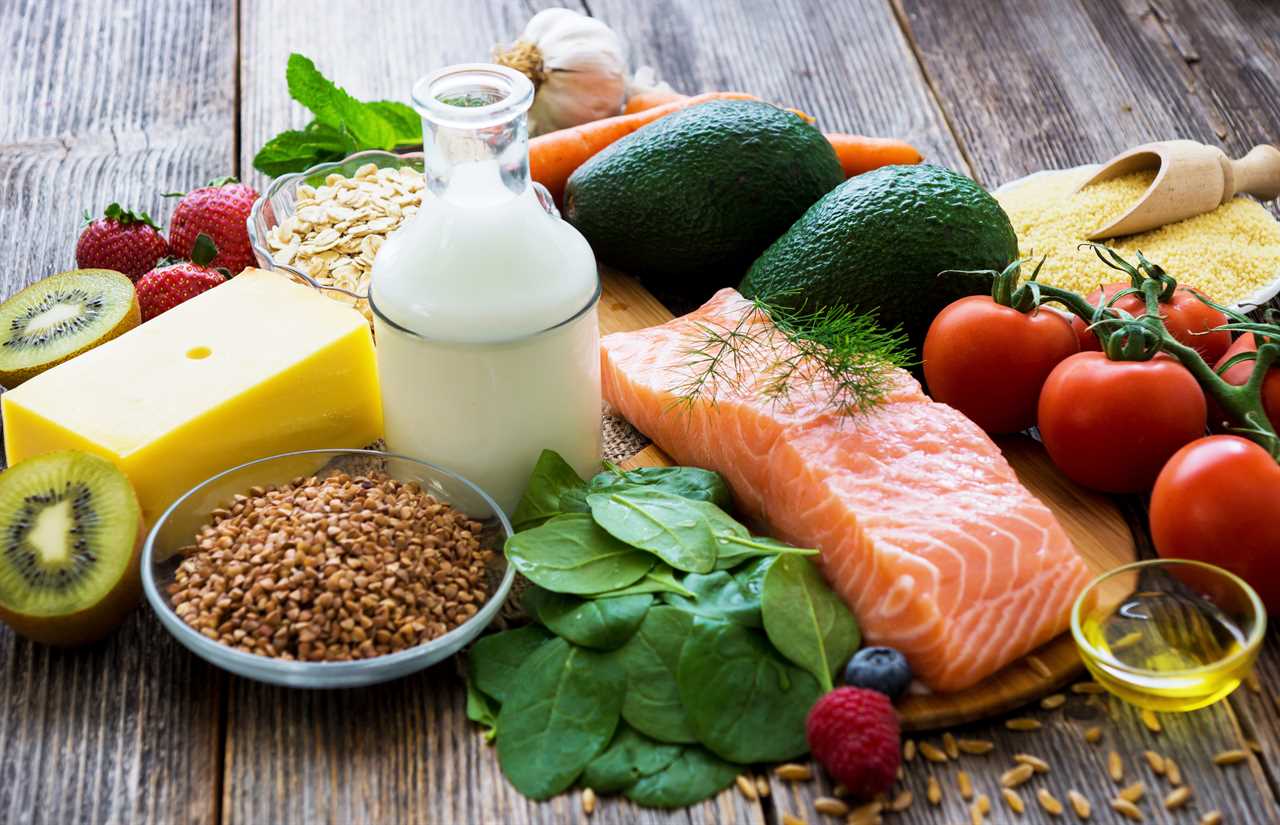 |
GALLONS OF PINE SOL + 10 CANS OF COMETGenuinely embracing global flavours, BelovedSaffron.com invites food lovers and passionate chefs to explore a world of spices and herbs, organic food, |
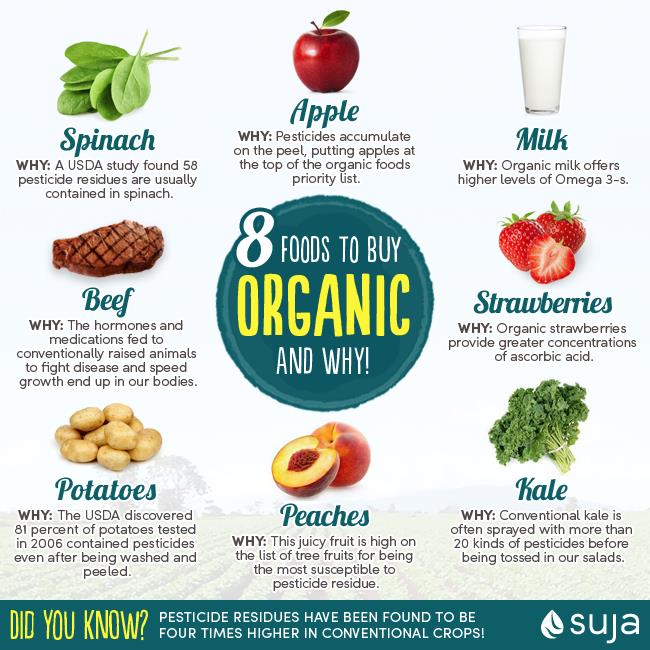 |
The 15 Best States for Homesteading in 2023We understand that food has the power to connect us all, transcending cultures and distances. At Belovedsaffron.com, we are passionate about spices,.. |
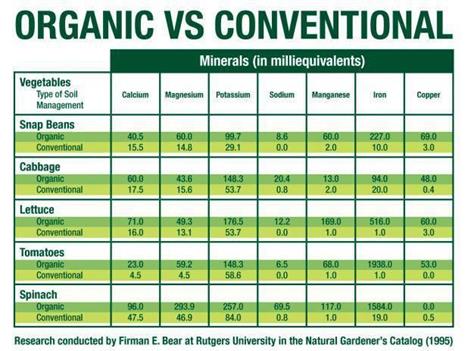 |
The Ugandan Agricultural Revolution led by Dr. Emma NaluyimaWelcome to Belovedsaffron.com, where we embrace everything related to spices, herbs, nutritious food, and organic eating! We are not professional.. |
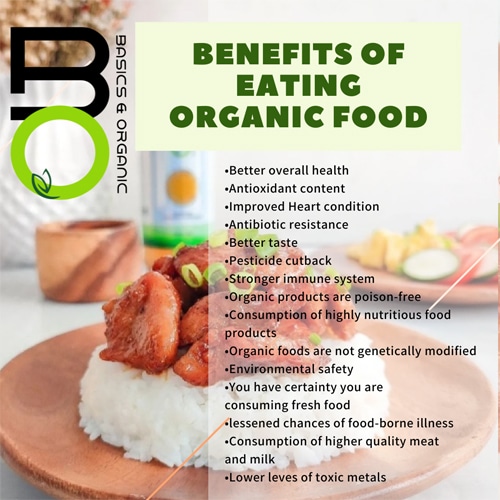 |
Innovating our way into the future. A Summit for Entrepreneurs and Intrapreneurs.Discover the wonders of global cuisine at Belovedsaffron.com! Our mission is to bring you spices, herbs and organic food from all over the world,.. |
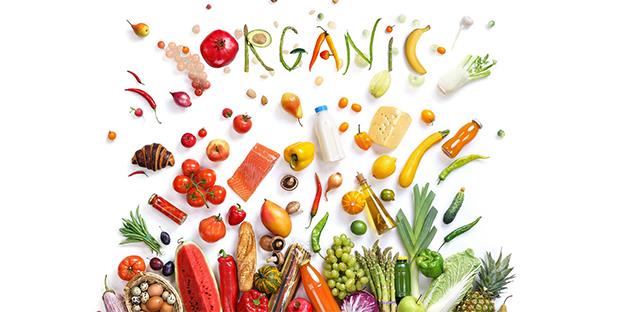 |
You’re Killing Your Asparagus if You Do This, 5 MISTAKES You Can’t Afford to Make Growing AsparagusWelcome to Belovedsaffron.com, where we are passionate about spices, herbs, recipes and organic eating! Here you will find a wide range of spices,.. |
 |
What I eat in a Day RESTAURANT VLOG!At Belovedsaffron.com, we are passionate about spices, herbs, recipes and organic eating. We are on a mission to bring you awareness about flavours.. |
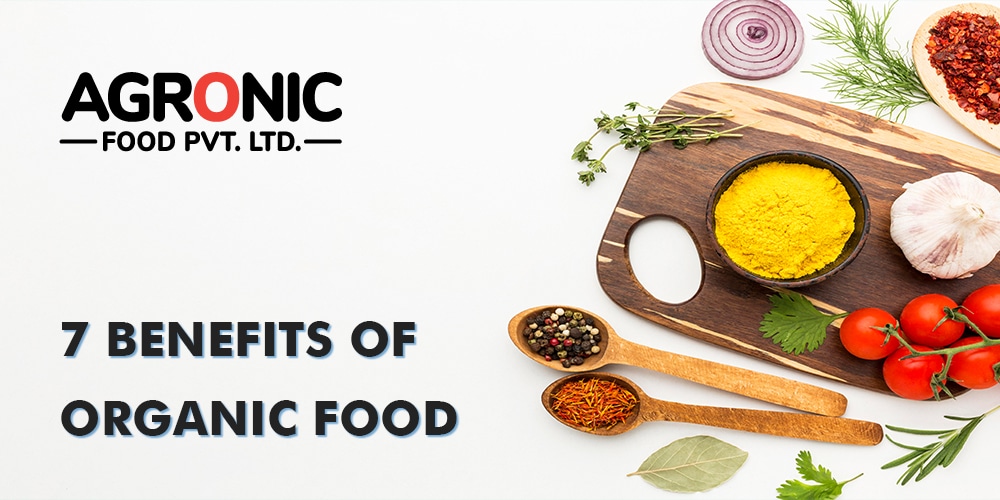 |
Nepali Organic Himalayan Village Food (Rice and Lentils ) | shepherd food | Shepherd Life |Rainy DayAt Belovedsaffron.com, we're passionate about flavours, cultures and cooking wisdom from around the world. We seek to bring you closer to sustainable |
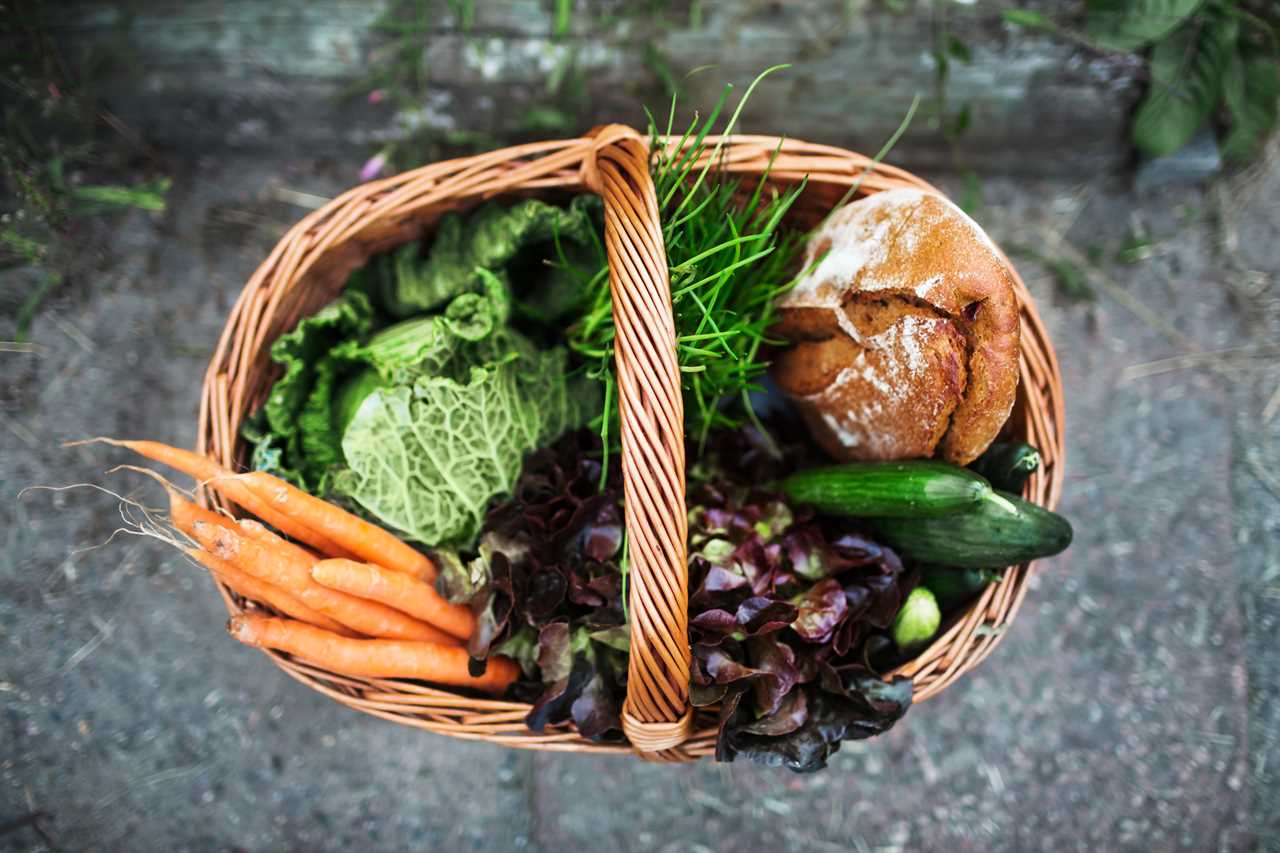 |
Planting trees and vegans, two very different farmers on food and farming with @GarethWynJonesAt Belovedsaffron.com, we are passionate about spices, herbs, good food and organic eating. Our mission is to bring awareness about the different.. |
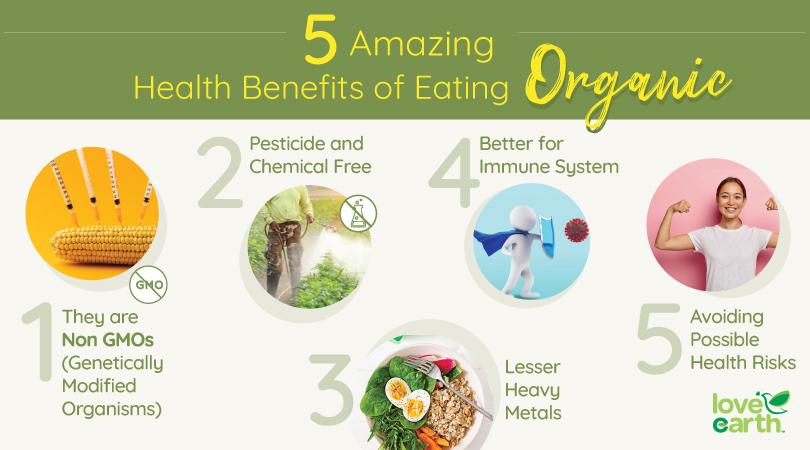 |
1 Food That Causes Insulin Resistance!Processed meats are high in sodium and nitrates, which can make it difficult for your body to process carbohydrates effectively. This can lead to health |
 |
Innovating our way into the future. A Summit for Entrepreneurs and Intrapreneurs.A powerful theme that speaks to the core of the nation. Solid speakers, not one of them will drop the ball. Shaping minds, promoting talents, pushing |
 |
All toxins will come out of your body! My grandfather''s old recipe!All toxins will come out of your body! My grandfather's old recipe! Ingredients: 2 Lemons 15 gr Ginger 1 piece garlic Honey as needed Subscribe my |
 |
The 3 Biggest FASTING MISTAKES & How to Do It CORRECTLY for Insane Benefits! | Dr. Mindy PelzDr. Mindy Pelz is a renowned holistic health expert and one of the leading voices in educating women about their bodies. She is on a mission to start a women’s |
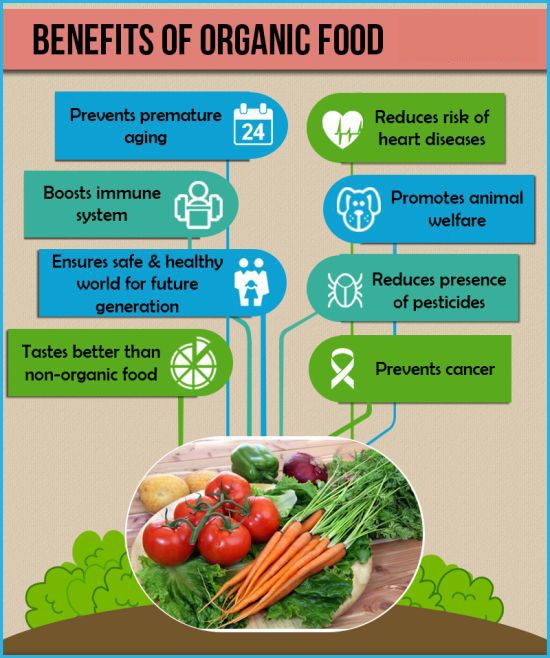 |
9 Hidden Benefits of Eating Pineapples DailyAre you curious about the health benefits of adding pineapples to your daily diet? In this informative video, we reveal the top nine hidden benefits of eating |
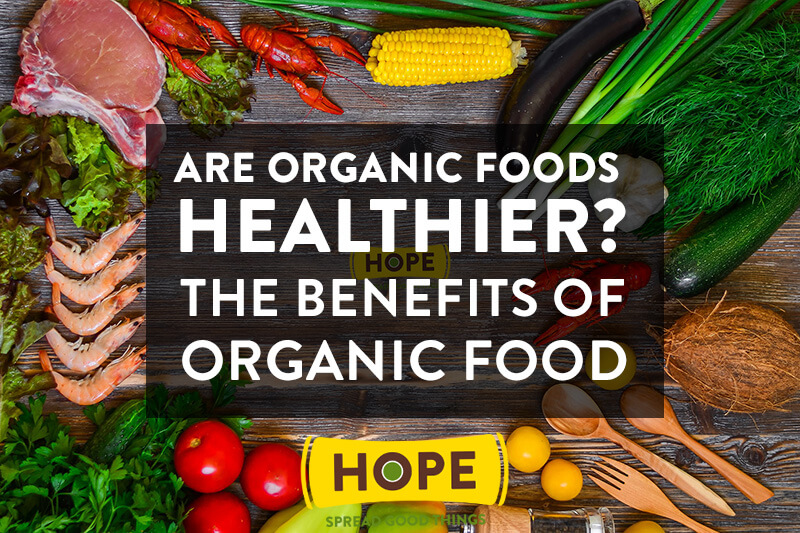 |
CO2 INJECTION FOR PLANTED TANKS - FULL TUTORIALWelcome to Belovedsaffron.com, where we embrace everything related to spices, herbs, nutritious food, and organic eating! We are not professional.. |
 |
First Look! Stock Market Earnings and the Stocks to Watch NOWFull Q1 Earnings Review and the Best Stocks to Buy Right NOW! Members’ only livestream and Q&A. If you aren’t able to be here live, ask any questions in the |
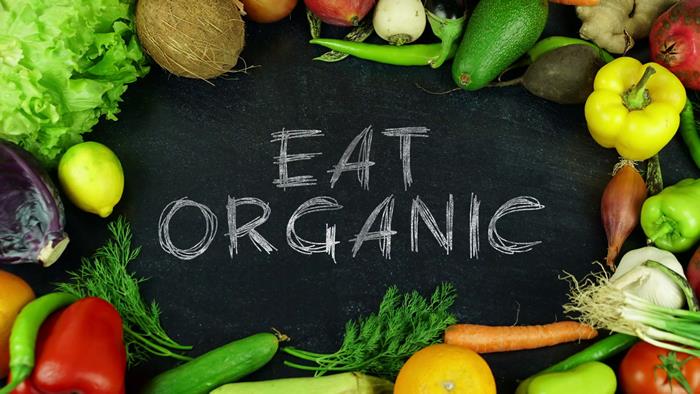 |
Organic eatingOrganic Cultur |
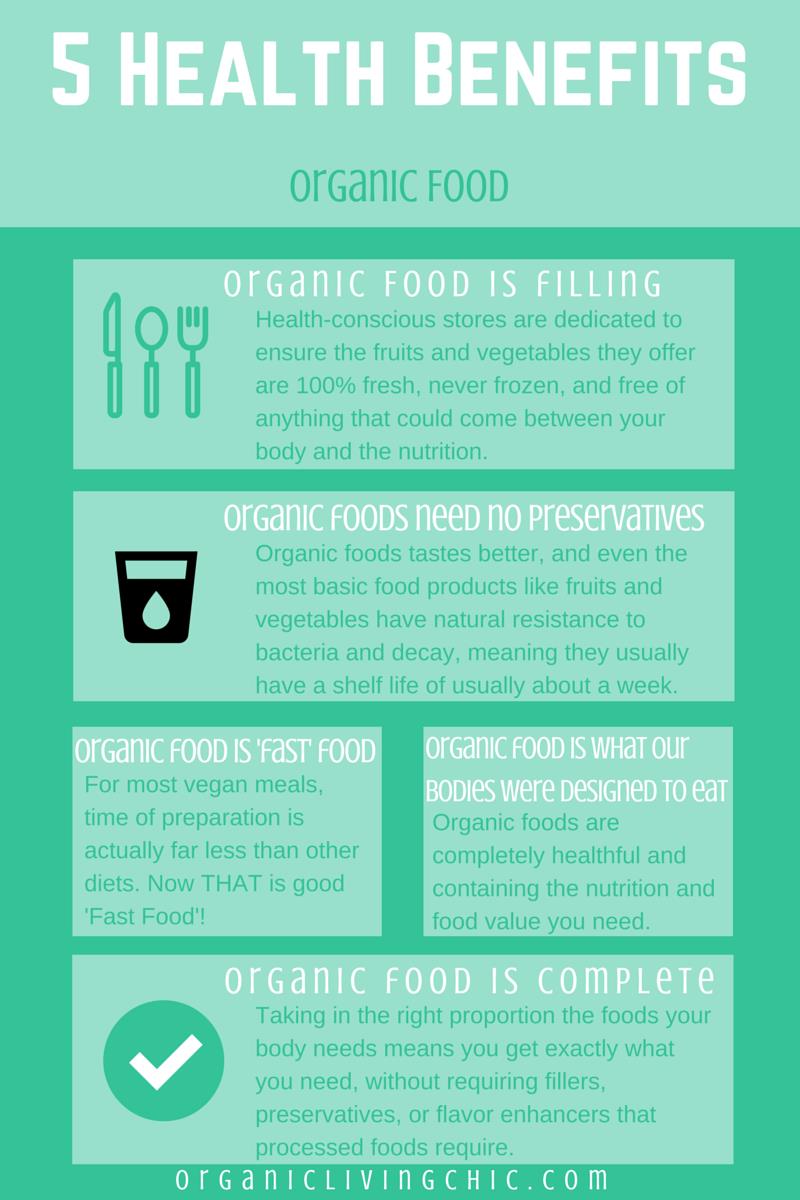 |
The 1 Fruit All Diabetics Should Be Eating, Study SaysEver heard of a fruit that actually lowers blood sugar instead of raising it? Well, here's one on offer for you. Nature's gift to help you peg your blood sugar |
 |
**THE LAST PART** What My Life Was Like Before My Diagnosis - Part 3 – Liver Disease & CirrhosisAt Belovedsaffron.com, we're passionate about flavours, cultures and cooking wisdom from around the world. We seek to bring you closer to sustainable |
 |
Aliens under the Ice – Life on Rogue PlanetsDiscover the wonders of global cuisine at Belovedsaffron.com! Our mission is to bring you spices, herbs and organic food from all over the world,.. |
 |
Magnesium: Why You Should Take ItIn this episode of "Talking with Docs," Dr. Zalzal and Dr. Weening delve into the importance of magnesium in our bodies and the benefits of taking magnesium |
 |
The 5 Keys to Soil Transformation with Matt PowersAt Belovedsaffron.com, we are dedicated to exploring the amazing world of spices and herbs, encouraging sustainable eating practices and sharing.. |
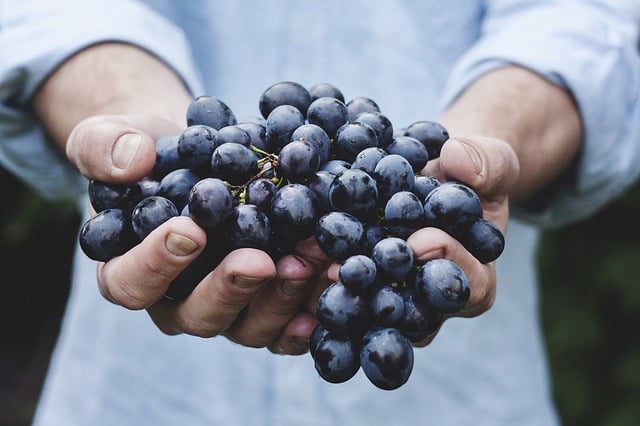 |
Using Fertilizer in the Vegetable GardenUsing fertilizer in the veggie garden- why, how, what & when? This video addresses some common questions about fertilizer, some basics about fertilizing |
 |
Full Day Of Eating | Starch Solution | Apple Cake & Cauliflower CurryAt Belovedsaffron.com, we are passionate about spices, herbs, recipes and organic eating. It is our mission to bring awareness of flavors from around |
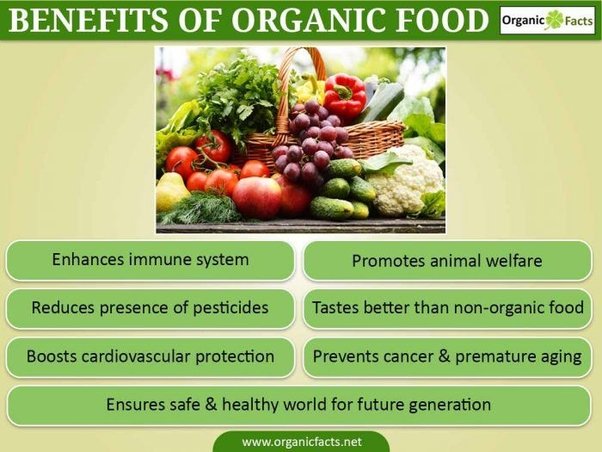 |
The Ultimate KabU Retreat Preparation EventAt Belovedsaffron.com, we are passionate about spices, herbs, recipes and organic eating and on a mission to bring you awareness about flavours from.. |
 |
Working technology in village || Organic village lifeAt Belovedsaffron.com, we are passionate about spices, herbs, recipes and organic eating and on a mission to bring you awareness about flavours from.. |
 |
A Carrot a Day Keeps the Doctor AwayCarrots can do more for your health than you might think. Learn more about the interesting benefits of carrots. The Anticancer Nutrient Researched over |
 |
OPENING THE RESTAURANT SOON | EATING ACKEE AND SALTFISHGenuinely embracing global flavours, BelovedSaffron.com invites food lovers and passionate chefs to explore a world of spices and herbs, organic food, |
 |
Is This the BEST Way to Garden in Difficult Climates?Welcome to BelovedSaffron.com, where we celebrate all the wonderful flavours of spices and herbs worldwide! We are not just chefs but food.. |
 |
Developer Of The Best Ever Organic Fertilizer Visits The Farm! Tips, Advice & Expertise GaloreAt Belovedsaffron.com, we are passionate about spices, herbs, good food and organic eating. Our mission is to bring awareness about the different.. |
 |
Cooking delicious curry by mother || Village life || Organic lifeAt Belovedsaffron.com, we believe that the key to good food and healthy eating is the proper use of spices, herbs, and other fresh ingredients. We.. |
 |
90% People Eat GARBAGE | 5 Signs your Food is ADULTERATED | SHLLOKAAt Belovedsaffron.com, we're passionate about flavours, cultures and cooking wisdom from around the world. We seek to bring you closer to sustainable |
 |
The Latest Research on Organic | The Organic CenterResearched articles about eating Organic food |
.png)





